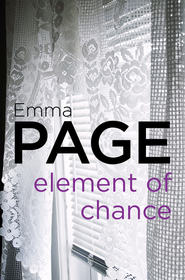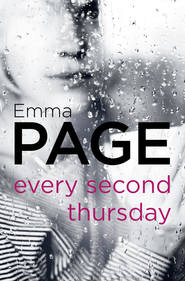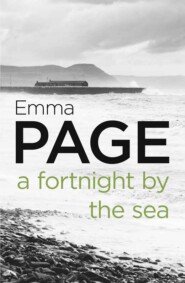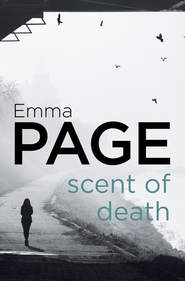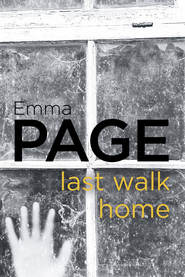По всем вопросам обращайтесь на: info@litportal.ru
(©) 2003-2024.
✖
In Loving Memory
Автор
Год написания книги
2019
Настройки чтения
Размер шрифта
Высота строк
Поля
He lifted his head and threw a swift glance at his parents. Neither of them paid him the slightest attention.
‘Not easy to get another job at my age,’ his father said heavily.
‘I’ll be off now,’ Norman mumbled.
‘Don’t you go starting to worry about it now, George,’ Ada Foster said, her voice habitually soothing in times of crisis, although her eyes were anxious.
Norman pushed his chair back quietly and let himself out into the fresh morning. He went over to the shed and unlocked the door. For a long moment he stood gazing down at his beloved gleaming dully in the light shining from the kitchen window. Then he moved over and gave her a pat, rubbing his fingers over the silk-smooth metal. His eyes were full of tears.
Gina Thorson stood at the foot of the staircase with a small sheaf of papers in her hand. The sound of a door opening and closing in the first-floor corridor – Dr Burnett’s visit must be over then. She could hear voices now, low voices, Dr Burnett talking to Mrs Parkes. Then the doctor’s footsteps, brisk but quiet, moving along the corridor.
He came into view. Gina smiled at him.
‘Good morning, Dr Burnett. How is Mr Mallinson?’
‘Very much better this morning. Really surprisingly well.’ He gave a little astonished shake of his head. ‘Of course there’s to be no work or excitement for the present, but I wouldn’t be at all surprised if he isn’t up and about again in a week or two.’
Gina glanced down at the papers in her hand. ‘There are some letters here he ought to deal with. I can see to most of the mail myself, a lot of it is pretty well routine, but these – would it be all right if I slipped into his room for a couple of minutes? I’d make it as brief as possible.’
Dr Burnett shook his head. ‘Surely David Mallinson can deal with these queries?’
Gina looked faintly disconcerted. ‘Yes, I suppose he could.’ She raised her eyes to the doctor. ‘Though old Mr Mallinson does like to keep the reins in his own hands.’
Burnett smiled. ‘I’m afraid he’s going to have to learn to let go of the reins. It happens to us all in the end. You take your queries to David, my dear, he’s very efficient, there won’t be much he can’t handle.’
Gina sighed. ‘Very well.’ She detached one letter from the sheaf. ‘There is this one, though. It’s a little more – personal – than the others. I don’t mean that it’s a private letter, but it is really for the attention of Mr Mallinson and not his son.’ She held it out. ‘Perhaps you’d better read it. I’m sure you know all about what’s in it. It seems everybody does, it was in all the papers, I believe, though of course it happened long before I came here.’
Burnett frowned and took the letter. He ran his eyes over the closely-written sheet, turned it over to glance at the signature, then turned it back again and read it with care.
‘I see,’ he said as he took it in. ‘From the widow of that man.’ He clicked his tongue against his teeth, recalling the case. Not a very savoury affair. Victor Stallard, employed in the Accounts department at Mallinson’s, accused of embezzlement – quite a sizeable sum involved, several thousands of pounds. A tall, quiet, bespectacled man with a wife and a baby son, he’d protested his innocence throughout his trial but the evidence had been there. Seven years he’d got and lucky to get off so lightly, old Mallinson had said loudly at the time. Stallard couldn’t have altogether shared this view of his sentence, six weeks later he’d hanged himself in his cell.
All this had happened some years ago, the widow and the baby son had dropped away out of sight. No provision had been made for them by Mallinson’s, for after all why should they? ‘‘Stallard must have put the money away somewhere safe,’ Henry Mallinson had said. ‘She’ll have plenty of cash, my cash. I wish her joy of it.’
And then a couple of weeks ago a senior accountant at Mallinson’s, struck down in the road as he was coming out of a pub after his usual late-evening drink, a jovial, well-liked man, highly-respected in the firm, had opened his eyes in the hospital ward where he lay dying from appalling injuries, had asked for Matron to be summoned, had made a statement, cleared his conscience before his eyes closed again for ever. He’d taken the money and let Stallard carry the blame. Stallard had known nothing whatever about the embezzlement, he had been completely innocent.
The papers had got hold of it of course. Reporters had come hanging round Whitegates, trying to get old Mallinson to talk, there had been persistent phone calls but he would answer none of them, would say nothing, wouldn’t even discuss the matter with Dr Burnett when he’d tried to raise it. And now – this letter from Stallard’s widow.
‘She intends to see him then.’ Burnett raised his eyes from the letter. ‘Hardly surprising.’ He glanced down at the address, some village on the east coast. ‘She must have had a hard time of it, with a child to rear.’ There hadn’t been any money hidden away of course, there had been no pension, nothing. How had she managed? He shook his head. ‘A nasty business all round.’ He didn’t like the tone of the letter. It made no specific demands, only the fierce, long-pent-up outpourings of a woman who had suffered a very great deal, who had forgotten nothing and was prepared to forgive nothing.
‘I imagine she wants money,’ Gina Thorson said. ‘I don’t know what the legal position is but I would think she’d be entitled to a good deal of money.’
‘She never once mentions compensation,’ Burnett said. Could the woman conceivably want something else? The restoration of the good name of her dead husband, that of course. But what besides? Revenge?
He handed the letter back to Gina. ‘I fancy some provision could be made out of court, for her and the child. But Mr Mallinson must not on any account be bothered by this just now. David must see to it, he must answer the letter, explain that his father is ill. He can make an appointment to see the woman, he can get on to the lawyers, he can settle everything. If it is necessary for his father to sign any papers, they can wait over for a week or two. After all these years another week or two isn’t going to make all that difference to Mrs Stallard.’
‘David Mallinson and his wife came round first thing this morning,’ Gina said. ‘As soon as Mrs Parkes phoned them. They were very anxious to see old Mr Mallinson, but she wouldn’t allow it, said you told her he had to be kept very quiet.’
Dr Burnett nodded. ‘Yes, she told me about it. She was quite right. In any case he was sound asleep this morning, they couldn’t have spoken to him. I shall be looking in again this evening, they can see him for a minute or two after my visit, if everything continues to go smoothly.’
Gina gave a little smile. ‘Mrs Mallinson brought a huge bunch of flowers. At seven o’clock in the morning.’
A trace of answering amusement looked out from the doctor’s eyes. ‘I fancy Carole Mallinson would always be able to lay her hand on a suitable bunch of flowers whenever the occasion demanded.’
His manner changed abruptly. ‘Was there anything else you wanted to see Mr Mallinson about?’ He had the notion that there was something else, something personal perhaps.
Gina slid him a little considering glance. Then she made a small movement of dismissal with her hand. ‘There was something, but it isn’t very important. It can wait.’
‘I’ll look in again this evening.’ Burnett moved towards the front door. He turned his head and gave her a quizzical smile. ‘Shall I give Richard Knight your love?’
Gina felt a blush rise to her cheeks. ‘No need for that,’ she said lightly. ‘I’ll be seeing him myself this afternoon. He said he’d look in for a cup of tea.’
A damp misty evening in London, a thin depressing drizzle filming over the tall windows of the studio flat right at the top of the house. Not at all a gay evening, no help from the weather to raise despondent spirits.
Tim Jefford gathered up the unpaid bills into an untidy pile and dropped them on top of a battered desk against the wall. He crossed to the window and stood looking out at the dismal evening, rubbing his unshaven chin, wondering just what he was going to do with himself.
He drew the long curtains together with a savage gesture, shutting out the evening. He turned to face the appalling clutter of the room. Painting materials everywhere, brushes thrust into jars, squeezed-out tubes of paint, a couple of half-finished canvases propped up on easels, other canvases stacked against the walls, dozens of them, unsold, unwanted. Paint-stained cushions tumbled in a heap along an ancient divan, one end supported on a pile of broken-backed books, pieces of brilliant-hued material thrown in a jumble on the floor. He ran his fingers through his hair.
‘Not much to show for eight years’ work,’ he said aloud, wryly.
In the corner of the room a Siamese cat uncurled itself from a nest of rags, stood up, arched its back, yawned widely and picked its way towards him. He thrust his hands into the pockets of his old jacket, searching for cigarettes, finding only an empty packet and another containing a squashed-out stub. He flung them away in disgust, stooped and picked up the cat which was rubbing itself against his leg. He stroked the silky fur.
‘Do you want something to eat, Princess? So do I. I’d better go out and see what I can find.’ He deposited the cat without ceremony on the heap of cushions, snatched an old fawn raincoat from behind the door and slammed out without bothering to switch off the lights.
Twenty minutes later he came banging into the house again. On the first floor Hilda Browning jerked her hands from the typewriter, waiting for the rush of feet going up the stairs, the studio door being flung open, being crashed to again. She shrugged her shoulders and smiled. One day middle age would descend on Tim Jefford, one day he might actually walk up a flight of stairs, might enter and leave a room without making the walls shudder.… But not for a good many years yet. She smiled again, gathered together her wandering thoughts and returned to the long hard slog of her novel.
‘Food, Princess!’ Tim ripped apart the sides of the brown-paper bag and spilled the contents out on to the table. First, the tin of catfood. Princess had already begun her low anticipatory growl. Tim rummaged about in a drawer, found the tin-opener and carved the top of the tin into ragged edges. He thrust a spoon into the tin and scooped out the meat on to a plate.
‘Here you are, Princess, get stuck into that! Feast on the nourishing liver and gravy!’ Princess crouched on the floor like a devotee at prayer and began to wolf the food, managing at the same time to keep up an ecstatic purr.
Tim opened a new packet of cigarettes and surveyed the rest of his purchases. A greaseproof packet of sliced ham, a waxed carton of potato salad, a crusty French loaf, a packet of butter, a squashy bag of ripe foreign cheese and a small jar of instant coffee.
‘A feast, Princess,’ he said, jangling the few coins left in his pocket. He looked down at the cat single-mindedly disposing of the chunks of liver. ‘Make the most of it,’ he said on a wry note. ‘It may be the last you’ll get for some time.’
He went slowly over to the sink and ran water into the battered kettle, set it on the stove and lit the gas. He sighed and glanced at the top of the bureau, at the pile of bills. He plunged his hand into his pocket and drew out the meagre handful of coins, running his eye over them, calculating. Nine shillings and fourpence-ha’penny.
He crossed to the desk, unlocked the bottom drawer, thrust his hand under the jumble of papers, books, tubes of paint, and pulled out a metal cashbox. He lifted the lid and stared down at the folded notes. No need to count them, he knew how much there was. His last reserve, absolutely his last-ditch reserve. Twenty-five pounds, folded away two years ago during a brief surge of prosperity when he had actually sold three canvases in the same month. He lifted his eyes to the wall and grinned. He’d thought then that things had really begun to move his way, he’d thought hard times would never return. It was only the memory of months and years of near-starvation that had made him press the notes into the box, a permanent insurance, never needing to be touched, a gesture of remembrance towards the chaotic, rumbustious past, a salute to old times that would never come again.
But the wave of good fortune had subsided into a ripple, had died away at last. He was lucky now if he sold three canvases in a year, let alone in a month.
‘I’m at the watershed, Princess,’ he said. The cat gave her entire attention to cleaning the tin plate of all traces of gravy. Her tongue made a tiny rasping sound against the metal.
‘Do I start on my last-ditch reserve?’ Tim asked the cat. ‘Or do I stop now? Make a bonfire of the lot of it?’ He threw a look of fond contempt at the paintings, the easels, the heaps of brilliant rags. ‘Spend the money on some clothes? Go out and get a job?’ He saw himself serving in a shop, clattering a luggage trolley along a railway platform, washing up in the cavernous kitchens of some vast hotel.
‘I’m not getting any younger, Princess,’ he said sadly. ‘And that’s an indisputable fact.’ Princess gave the plate one last appreciative dab with her tongue and then retired to the cushions to deal with her fur.
The kettle spouted steam towards the ceiling. Tim laid the cash-box tenderly down on the desk and went over to the stove. Hunger stirred sharply inside him again. He made the coffee, sat down at the table and tore open the packet of ham. Half-way through his meal he remembered the evening paper thrust into the pocket of his raincoat. He glanced idly at the headlines. Student unrest, somebody robbed, a controversial speech by a junior Minister.
He scooped up the odorous cheese on to a hunk of bread, turned the page and sat up suddenly, letting the piece of bread drop from his fingers on to the brown paper bag.






